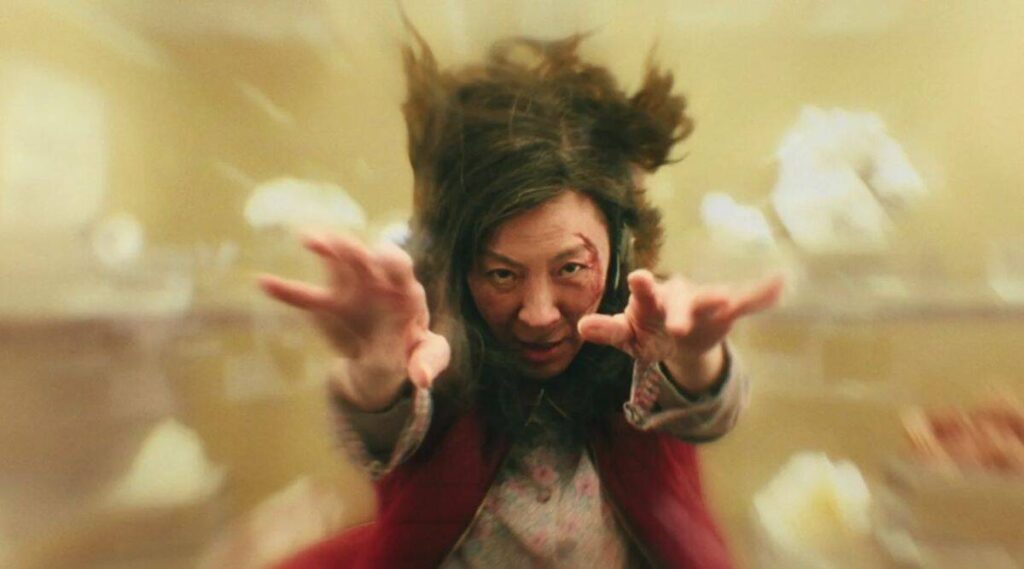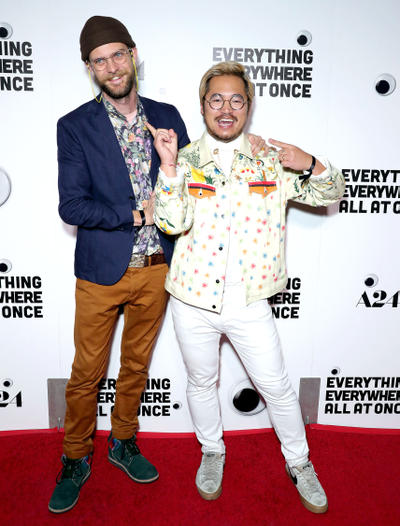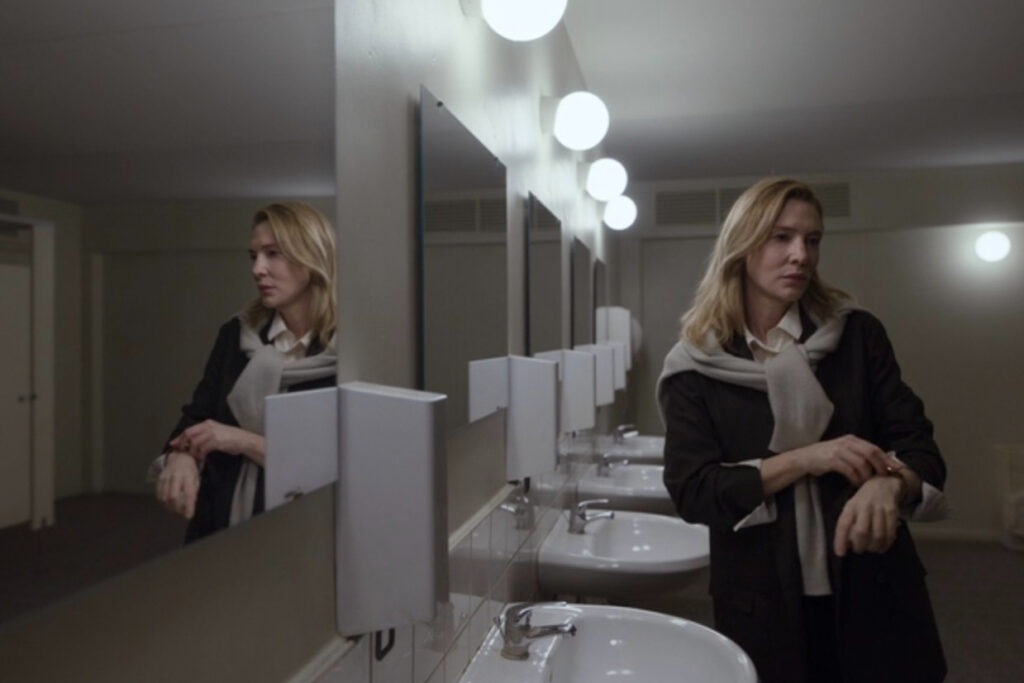
The Academy Awards are on for Sunday night, and this year I truly believe I’m losing it. Or someone’s losing it. Or one of those comic book multi-verses has wobbled off its galactic plane (or whatever) and distorted reality as we used to know it.
I am perversely proud of the thousands of hours I’ve spent at the movies. It’s a love affair I owe almost entirely to my mother, who hauled me along to see “The Creature from Black Lagoon” when I was four. Never mind I spent most of that evening on the floor, terror-stricken, and barely slept for a week afterward. I had found true love. A door opened for my tender imagination.
Naturally, as so often happens with life’s early passions, critical thinking, raised by time, comparisons and other judgments got applied to such love and I realized all movies were not made equally, or equally well-made I should say.
I remember a very hot summer evening when I was 13, watching a black and white WWI movie on TV and realizing I was mesmerized by the story that was unfolding. “Paths of Glory” I realized was having much, much more impact on my half-formed imagination than any C-grade western shown at the Hollywood Theater down on Main Street Montevideo, Mn. Something in that movie was working on me in ways others didn’t. I went searching for more.
This is all welling up because I’m nearly finished screening all of the 10 films nominated for this year’s Best Picture. (I still haven’t caught up with the new ”Avatar”, “Elvis” or “Women Talking.” I’ll eventually see the first and last, but have no interest in “Elvis.”) But the primary motivation here today is my reaction to “Everything Everywhere All at Once”, the odds-on favorite to “sweep” the Oscars, and which I watched … and watched … and watched last night.
If someone was in the room clocking it and told me “EEAAO” was six hours long, I’d have believed them. Lord, what a slog. My wife, The Lovely Mrs., was off at some high brow Louise Erdrich event. So she didn’t have to listen to me ranting, “What the f**k?”, “Oh good god! Just stop already!”, “Please, please … enough is enough! ” as well as asking no one and anyone, “Is there a purpose to this anywhere in here?”
I have seen a lot of genuinely excellent films, stories told with artfulness and visual panache. And I’ve seen way too many that I can only file under, “utterly hapless.” But there are very few … Oscar front runners … that I found to be insufferably chaotic, visually grubby, thematically trite and just generally annoying as a nine year-old’s prolonged tantrum. But that was my reaction to “Everything Everywhere All at Once.” I couldn’t wait for it to be over.
But why? What am I not connecting to? The movie has won every imaginable award and 19 out of every 20 critics have been ecstatic about it.
I quote:
“The most brilliantly bananas movie of 2022 absolutely lives up to its title. Michelle Yeoh kicks all types of butt as a time-traveling laundromat manager in a multiverse of madness.”
“Raising an ecstatic hot dog middle finger to the negativity of modern times, ‘EEAAO’ urges us to free our minds and accept that it’s OK to be strange.”
“A wonderfully weird, exhilaratingly all-over-the-place absurdist comedy, led by great performances and a screenplay that is as funny as it is moving.”
With a 95% approval on Rotten Tomatoes the very few dissenters are in a distinct minority.
“Some seem to believe this movie is a philosophical masterpiece because characters reach conclusions such as: ‘nothing matters’. If this were the case, Queen’s Bohemian Rhapsody would also qualify for the title. The problem is that philosophy involves working through a line of argument, but the Daniels [the film has two directors, both 35 years-old and both named Daniel] have been content to hit us with a succession of propositions and hope we are too dazzled to think about any of them deeply. Chief among them is the multiverse, which is now a feature of every second superhero movie, but never seems much more than an excuse for lavish indulgences in CGI.”

“… the filmmakers take the most complicated path to something very simple about overly busy lives and the possible versions of ourselves that might exist with different choices along the way. It’s visually restless, thematically redundant and the rare movie to be both overwhelming and underwhelming. After only a little while, you’ll desperately long to be simply whelmed.”
“There’s an undergraduate philosophy-level ponderousness to this thematizing that isn’t helped by the filmmakers’ quintessentially millennial seriocomic affectations … .”
So yes, I’m very much in the 5% camp. I am way out of step. But why? I have a handful of theories.
Theory #1: I really am old and in no way plugged in anymore to current fashion. I’m with the great Martin Scorsese when it comes to super hero/comic book/multi-verse movies. They’re not movies. Certainly not as I grew up thinking of movies. The Marvel Universe and all that it describes are essentially shareholder-value focused amusement park thrill rides. All about ADHD pacing, spectacle and clamor with nothing at all to say about human life other than there are good guys and bad guys. The “Daniels” are couple millennials steeped in video games and, being Hollywood players, the sweet, juicy nexus of gaming and feature film commerce. The canny, Oscar-bait sweet spot here being an Asian cast, a gay romance and a “family affirming” denouement.
Theory #2: The Oscars, with its roughly 10,000 voting members, is no less susceptible to groupthink and virtue signaling than any other sub-culture. The old line about, “If you want to send a message, call Western Union”, applies as much to the Academy’s sense of itself as an influential international public entity as any tortured, amateurish screenplay. There are endless examples of the Oscars voting up films that primarily deliver an expression of the movie industry’s collective support of racial minority rights, gay rights, remembrance of the atrocities of slavery, the Holocaust, name your physical/mental affliction and “lifetime achievement”.
Which isn’t to say such expressions aren’t noble and valuable, only that they aren’t necessarily artful. They don’t really have anything to do with “Best” or the past year’s most notable achievement in the craft of filmmaking in any given year.
Put another way, quite often the Oscar winners have much less to do with artful achievement than they do with checking socio-political boxes that undergird the Academy voters’ projection of their own personal values. In the case of “Everything Everywhere … “ my guess is that given the persistent criticism of #OscarsSoWhite, #SoLackingIn Women, etc. the opportunity to award a film based in Asian culture becomes socially and reputationally irresistible, overriding any disparaging opinions about the film’s pedestrian narrative and visual histrionics.
Theory #3: So do I have some kind of anti-Asian bias? Not that I’m aware of course. Although I freely confess I’ve never had any interest in kung fu movies, Hong Kong/Jackie Chan “action” movies, etc. Wong Kar-Wai’s “In the Mood for Love” is much more my thing. Or Bong Joon-Ho’s “Parasite”, for a recent example of where Oscar voters got it right. (Although in 2019 I would have voted for Terrence Malick’s “A Hidden Life” … but that is like … my opinion … man.)
To me the cartoonish spectacle of kung fu – and there are at least a half dozen too many chaotic kung fu interludes in “Everything Everywhere … “ – is just a pulp variation on some lunk-headed, bullet-spewing Rambo flick. There’s no suspense to anything you’re seeing. You’re just meant to savor the mayhem.
The question I have for all the critics and Oscar voters exalting over “Everything Everywhere … “ is whether they have consciously or unconsciously overvalued the film’s Asian/much ignored minority component in a desire to “send a message” that they and Hollywood concede a need to correct a long-standing wrong … and thereby reaffirm their progressive bona fides. Which, I repeat, is fine … but has nothing to do with “art” if that’s what’s being judged. (It isn’t, but it’s supposed to be.)
Personal tastes are – sort of – everything in matters like this, and in that context I confess that were I an Academy member I’d have voted a straight “Tar” ticket. (Here are Variety’s 2023 Oscar predictions … please note what they believe “should win.”) I’ve seen it three times now and it keeps getting better. If the craft of filmmaking – the marriage of narrative/story with dialogue, performance, production design – cinematography, sound and editing – is what builds and constitutes art, “Tar” is heads and shoulders above anything else I’ve seen in the past three years. It’s a mesmerizing amalgamation of all the skills of filmmaking. (Alfonso Cuaron’s “Roma” being the most recent competition in that regard.)

The betting odds currently suggest “Tar” won’t win anything.

This is the most frantic movie I’ve ever seen. I can’t believe I watched the whole thing. I did and felt like I’d just boxed 15 rounds and lost. Maybe a sequel. Nowhere, Nothing, Never.
There’s always “Transformers 6”.
Could not agree more. “Everything All At Once” is exactly what the title implies — Too much stuff, not enough artful decision making. I, too, kept wondering WHEN it was ever going to be over?? Thanks for the Tar heads up — it’s gone to the top of my list.
Larry: Let me know what you think. best.
To speak to your discussion of “artfulness”, the theater’s (talking stage theater, here) expectation is that a theater goer enter a performance with the weight and depth of everyday life and leave that performance changed in some way. Now the degree or content of that change very much sits at the intersection of each individual’s relationship with communities- their social peers, their locality and mostly, their intellectual cohorts. There will always be people who walk out of a performance with a view completely disconnected from the majority and this can have little to do with the play itself.
So “art” imitates life as a philosophical discussion. People create what they wish to see in the world, absent value systems or limitations of our abstract minds. Art can be the concrete manifestation of thought experiments. Could it be that those who dislike EEAAO are unwilling to extend to that degree of thought experiment? Those who I know who appreciate the movie do talk about the overt combination of escapist, fantastical material, the chaos that mirrors how so many presently experience everyday life and the trite but true human truths that can be pulled from it all. It breaks molds while simultaneously feeding them to viewers such that it becomes easy to let go of typical expectations of outcomes and norms. I get that this absolutely will not resonate with some people because they can’t make that leap. We are who we are. There is also further discussion about EEAAO’s treatment of externalized and internalized stress simultaneously, but that’s kind of an academic setting conversation. I mean, to be blunt: have you never had a good trip? Science has discovered the therapeutic value of such activity but again, there are people who it does nothing for.
Anita: Very interesting. I genuinely enjoy this kind of conversation. I brought the topic up because it surprises me how much I’m out of step with the consensus. This has happened before — i.e. Marvel movies, absurd “action’ films, etc. — but never with a movie predicted to be an Oscar front-runner. To your question of whether someone — a person like me — is just not open to what a piece of art such as “Everything … ” is offering. I concede that that is a strong possibility. As I write, the kung fu business, the fortune cookie triteness of the alleged message, i.e. “nothing matters”, “we’re all a version of our experiences”, “somewhere out there is the best version of ourselves”, yadda yadda not to mention the messiness of the aesthetics (visuals, editing, art direction) presented serious obstacles to me in terms of “appreciating” what the directors were trying to get across. Put very simply … I’m clearly not the audience for this film. By way of a comparison to other art forms, while not a devotee of say, interpretive dance, I’m open to someone’s deeply personal expression … provided it doesn’t hold me captive for two plus hours. Likewise, abstract painting. I find some it silly of course, but from Jackson Pollock to some anonymous artiste, I’m happy to make a trip to a museum or gallery to view and respond. Again though, not being held captive for hours on end. The essential point in that context, for me, is that I found “Everything …” ironically derivative, an “everything and the kitchen sink” approach, checking boxes to appeal to various “hot” audience sectors. Something as I say, “Tar” adamantly refuses to do, leaving rich territory for the viewer to interpret motivation and action for themselves … as all true art should do. This of course leads to the reverse angle question on “openness”, namely could there also be a level of susceptibility to superficial cultural “cues” that signal inventiveness, cleverness, meaningfulness, etc. without in fact providing anything but suggestions of any of that? As I said to someone else who liked the film, there’s an interesting and valid contrast to another recent frenetic, over-the-top film that achieved great popularity (and a basketful of Oscars), namely, “Mad Max: Fury Road”, which I thought was extraordinarily imaginative, remarkably well-designed, vivid and entertaining, albeit it without any trite messaging about … well, fill in any blank you want. But, sincerely, thank you for your response. This topic has nothing to do with finding a cure for cancer or preventing an overthrow of the Republic, but within it is a kernel of bona fide cultural significance. Best to you. And thanks for reading.
I absolutely love conversations that can move beyond a binary of up/down, good/bad, etc. They keep me sane, lol. I’ve long appreciated your perspectives; my comment was not at all meant to be snarky. Film and cinema are below a novice level in my arts criticism toolbox, so as you see, I fall back on deeper skills elsewhere. I was destined for your turf at one point but went into education and recently healthcare instead.
The response to EEAAO has also been intriguing to me. I have kids in their early 20’s who absolutely loved it as did some friends and coworkers over 50. I’ve paid casual attention to the potential demographic characteristics of respondents and there’s little to parse there. I will be honest, that I deeply appreciate disruptors and disruptions that carry at least a modicum of legitimacy and integrity and I’ve really been trying to decide if EEAAO makes that cut. Thank you for your post and your attention past and present to what I value as one of the most accessible arts.
I also don’t get the whole Everyrhing everywhere all at once accolades..
As for Tar most of my women pals hated it so I haven’t watched it. I think I’ll try it. I really liked Banshees but I know it’s not for everyone, I loved In Bruges which was the same cast of characters several years ago. Saw Women Talking on Prime just the other day. It is just that, women talking but I found it worthwhile. Totally agree with InThe Mood For Love, beautiful film. I thought Lust, Caution was a great film, talking about Asian actors,etc. enjoy your writing very much.
Brian, You should be doing film reviewing full time! This reminds me of why you are so good at it. Thanks for your astute observations!
Thx, Mary. But as you can see I’m pretty far out of step with what is considered a “great movie.”